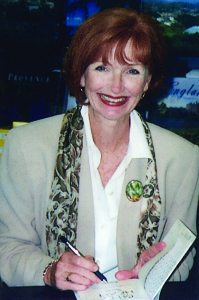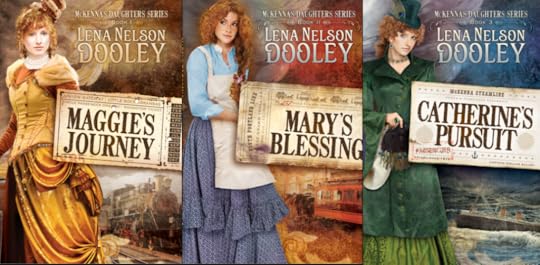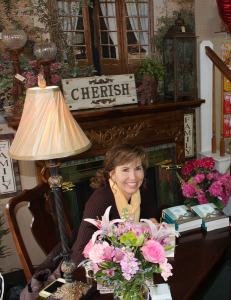Golden Keyes Parsons's Blog, page 6
February 3, 2015
AUTHOR INTERVIEW – DOLLEY CARLSON
Welcome Dolley! I am so thrilled to have you on my blog.
Tell us a little bit about yourself and your family.
I’m originally from Boston. Family moved to CA when I was 11. Husband from Chicago & his family moved to CA when he was 11. God’s plan was at work way back then – we have been married for 45 years.
Two daughters. Katie – Stay at home mom with 5 children under 9. No multiples. Lives 8 min from us.
Candy – TV producer. She has a dear heart for prison ministry, specifically mothers and children. Single. We’re praying for one more good man! J
We all live in So. Calif.
Tell us about your latest book, and how it came about.
The Red Coat – A Novel of Boston – I’ve written four non-fiction books and always wanted to write a novel but I needed to learn t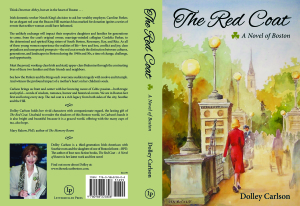 he craft and did at an advanced writer’s workshop in L.A. The Red Coat popped up in one of my pieces and I just knew this was it! Fellow writer and dear friend, Dianne agreed when we discussed the possibility on the way home.
he craft and did at an advanced writer’s workshop in L.A. The Red Coat popped up in one of my pieces and I just knew this was it! Fellow writer and dear friend, Dianne agreed when we discussed the possibility on the way home.
Think Downton Abbey, but set in the heart of Boston. Here’s a short synopsis:
Meet the proud, working-class Irish and upper-class Brahmins of Boston¾through the contrasting lives of two families and their friends and neighbors in the 1940s and 50s.
Irish domestic worker Norah King’s decision to ask her wealthy employer, Caroline Parker, for an elegant red coat the Beacon Hill matriarch has marked for donation ignites a series of events that neither woman could have fathomed.
The unlikely exchange will impact their respective daughters and families for generations to come, from the coat’s original owner, marriage-minded collegian Cordelia Parker, to the determined and spirited King sisters of South Boston, Rosemary, Kay, and Rita. As all of these young women experience the realities of life—love and loss, conflict and joy, class prejudices and unexpected prospects¾the red coat reveals the distinctions between cultures, generations, and landscapes in Boston throughout this time of change, challenge, and opportunity.
See how the Parkers and the Kings each overcome sudden tragedy with resolve and triumph, and witness the profound impact of a mother’s heart on her children’s souls.
Can’t wait to read this. It sounds wonderful!
Share about your genre and why you write in this style.
My genre is historical novel. I’m Irish and we’re storytellers J so I had the framework for the story. My grandparents were Irish immigrants and settled in South Boston in 1917. My heart holds so many family stories of the day and those met my imagination and love of faith, family, fashion, human behavior, romance and history.
What inspires you?
Observation. I’m a people watcher and listener x infinityJ!
In the case of The Red Coat I wanted to capture the history of the city as it was from 1941 – 1955. South Boston, where I lived as a little girl is on a peninsula surrounded by the sea. Although other ethnicities called it home the largest demographic and its reputation is Irish. Gentrification has set in because of the fabulous locale and I really want future residents to know all about the holy ground of “Southie.” I am so grateful for my good memory – my husband Tom says that God gave me an “extraordinary memory” because He had plans for me to be a novelist.
I would agree that you really are a good listener, dear friend.
Tell us about your writing process.
Well, dear Golden, as any writer will tell you – settling down and sitting in the chair is the hardest part of writing. But once I’m there I can sit still and write for 3-4 hours at a time. I enter the story and lose all track of time. Because my work is historical it also requires a great deal of research. Which I love! I have researched many times in Boston and on a daily basis join my editor’s praise when she says with a sincere heart, “Thank God for Google!”
I also search Ebay for pertinent items related to the period – The Red Coat has an unusual format in that I have used vintage postcards depicting places and people of Boston – as sidebars – and I have also developed sidebars without illustrations – they are intended as a way to take the reader aside and whisper a little something extra about what they are reading.
Readers have told me they love the sidebars. So grateful they do!
That sounds really interesting. In my Civil War novel, His Steadfast Love, I put famous quotes about the conflict and/or song lyrics from the day at the beginning of each chapter. People loved them.
What are your writing goals?
I have received many requests already for a sequel to The Red Coat. One enthusiastic reader said she’d like one as soon as possible and added “And I mean it!” Such a blessing to have people so excited about the characters. About mid book there’s a turn of events that has prompted readers to email and Facebook message me about how they felt about . . . They just wanted me to know how much they cared about that character.
What do you wish someone had told you about writing?
I wish they had told me to start sooner. When I was in 6th grade my teacher told me I had a gift for writing and I heard the same from a high school teacher. I went back to school as a young mother and my English professor said, “You’ve got it! You should be journaling every day.”
I was so focused on raising my family that I determined writing was something I would do some day. You know, Golden, on second thought, I think the timing was perfect. Although some may disagree J I am a baby-boomer so times a wastin’!
I wish I’d gotten started earlier too.
Tell us something about yourself that nobody knows.
Sometimes I’ll be so focused on the work that I’ll write through the night ‘til three or four in the morning. Makes for a pretty fuzzy day but as my Grammy used to say, “Darlin’ you’ve got to strike while the iron is hot!”
What hobbies do you enjoy?
I love to bake! And I love to set a really pretty table! Not just for company J My husband and I are empty nesters but a nice table setting brings both of us joy! I love this quote from Martha Stewart “Give your china something to do.” Not that we eat off china every night but the point is . . .enjoy!
I love going to plays, musicals, independent movies and concerts! Love!
Zumba is my primary exercise along with power walking by the ocean while listening to Irish tunes and worship music (Ipod)!
Love going to plays and musicals, and Zumba! Wish we lived close together where we could enjoy each other’s company.
Where can your readers contact you?
I can be reached at the book’s website – www.theredcoatboston.com
And on Facebook –https://www.facebook.com/authordolleycarlson and a message or on the page.
The Red Coat – A Novel of Boston is available on Amazon.com at http://tinyurl.com/q7lngl4 and barnesandnoble.com at http://tinyurl.com/p6w9hsy.
It can also be ordered from my website.
I’m honored to personalize and sign copies upon request.
Thank you so much, Dolley, for being with us. I’m excited about your new book!
If you enjoyed this post, please share it with your friends and subscribe to my blog and newsletter below. You will receive my modern short story version of ‘Trapped: The Adulterous Woman’ in your thank you email.
The post AUTHOR INTERVIEW – DOLLEY CARLSON appeared first on Golden Keyes Parsons.
February 1, 2015
Encounter on Snowy Mountain – Part 2
Part 2
A Short Story By Golden Keyes Parsons
Mike pushed open the door and motioned for Sonny to follow him in. “You can take your boots off here—and leave them on that rug.” He chuckled. “My wife’s kinda particular about that.” A fire was dying down in the fireplace, and the  fragrance of a leftover meal lingered in the room.
fragrance of a leftover meal lingered in the room.
“Certainly.” Sonny sat on the bench beside the door and pulled off his boots. “It shore feels good in here.” His toes poked through the ends of the socks, and the heels were threadbare.
Mike made a mental note. “Hey, I’ve got socks with holes in them, too. Seems like it happens all of a sudden.” He pointed down the hall. “There’s the bathroom, and the guest room is next to it. Make yourself at home, and I’ll be right back.”
Sonny looked in the direction Mike pointed, then shuffled into the bathroom, and shut the door. “Who in the world is that?” Kim was standing in the archway between the kitchen and the dining room in her robe. “He looks scary.”
“Shhh.” Mike shooed Kim to their bedroom. “I don’t know who he is, but he’s harmless.”
“How do you know he’s harmless?” Her voice rose. She was never thrilled over his habit of picking up hitchhikers, but to bring a complete stranger into their home for the night? “Another hitchhiker? You’ve gone too far this time. He could be an axe murderer!”
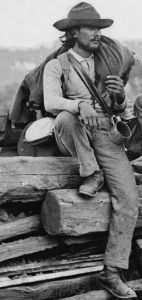 “He wasn’t a hitchhiker, and I didn’t see any axe.” Mike laughed at his conservative wife. “But, he was freezing in the snow. I found him in the parking lot of the church. I couldn’t leave him there.” Mike took his coat off and threw it on the bed. “Have you ever heard of a little community around here by the name of Virginia City?”
“He wasn’t a hitchhiker, and I didn’t see any axe.” Mike laughed at his conservative wife. “But, he was freezing in the snow. I found him in the parking lot of the church. I couldn’t leave him there.” Mike took his coat off and threw it on the bed. “Have you ever heard of a little community around here by the name of Virginia City?”
“No, why?”
“That’s where he said he was going, and he is sure it’s right over the pass. He says he’s from Virginia City. If he hadn’t been with me this evening, I might have … I came real close to going over the side of the mountain.”
“What?” Kim’s voice rose in alarm. “What happened?”
Mike told her about sliding to the edge of the cliff, the oncoming car and Sonny’s prayer. “I don’t know how he did it, but when he raised his hand, the truck stopped.” Mike shrugged his shoulders. “Probably coincidence. You stay in back here in our bedroom. I’ll take care of our guest.”
“I’m going to stay back there alright, and I’m going to get the pistol out of the closet—and pray.”
“In what order?” Mike laughed at his wife.
Kim grumbled. “I left a dinner plate in the microwave for you.”
Mike divided it and put half onto a paper plate. He walked to the opposite side of the house to the guestroom.
“Here’s a bite to eat.” He turned down the sheets on the bed. “Please, help yourself to anything you need.” The stranger still wore his coat.
“Would you like some pajamas or anything?”
“No, thank you. I don’t need a thing. I’ll be fine.”
“I have to leave early in the morning. Do you need an alarm?”
“I’ll wake up without one.”
Mike excused himself and closed the door. “See you in the morning.”
Mike woke up early. He rummaged around in his sock drawer and chose two pair of heavy socks. Kim was still asleep, so he fixed a piece of toast and a cup of coffee, put it on a tray along with the socks and walked down the hall to the guestroom. He found the door ajar, and Sonny standing in the middle of the room, with his coat on. Pieces of the tattered lining of the coat floated to the floor. The bed remained neat and unslept in; the dinner on the paper plate untouched on the nightstand.
Mike didn’t mention condition of the bed. “I found a couple pair of socks for you.” He set the toast and coffee down and picked up the plate of food from the night before. “Weren’t hungry?”
“No, sir. Thank you for the socks.” Sonny stuffed them into his coat pockets.
An uneasy silence settled in the room. “Well, we’ll leave in about twenty minutes.”
Sonny waited for him in the foyer, downing his coffee. “Mighty fine coffee. I sure do thank you.” He set the empty cup down on the credenza in the entry way.
The two men stepped out into the dazzling white snow from the storm the night before. The snowfall had ceased. Mike backed the car out of the garage as Sonny waited for him in the driveway. Mike drove the stranger to the south side of town. “I suggest you head south. As soon as you get out of the higher elevation, it’ll be warmer.”
“Thank you kindly.”
“Perhaps you can catch a ride.”
“Yessir.”
“I pray God’s blessings on you, my friend.”
“I thank you, sir, for your hospitality.” He wrapped the dirty muffler around his head before he opened the door and stepped out. The peculiar man thrust his hands in his pockets and started walking.
Mike turned his truck around and headed back north. He looked in the rear view mirror at the young man as he shuffled along the shoulder of the road, his shoulders hunched, the fringed edge of his muffler whipping in the wind. Mike stopped by his house before heading up the mountain to the church. The smoky odor of bacon greeted him as he stamped into the house. He noticed the coffee cup was gone from the credenza.
Kim turned, cooking fork held above the sizzling skillet. “What do you think that was all about?”
“I have no idea.”
“I checked the guest room and the bath—nothing had been used. No water splashes in the sink; no towels used. The bed had not been slept in. The only evidence of his being here are these pieces of cloth.” She held up a piece of the faded, red, tattered lining. “Little bits of this were all over the carpet. Do you suppose he just slept on the floor?”
Mike shrugged his shoulders. “I dunno. He didn’t eat anything either.” He looked in the sink and then the dishwasher. “Did you get his coffee cup from the credenza?”
“What cup?”
“The coffee cup I took to him this morning.”
“I didn’t see any cup.”
Mike shook his head. “Well, he may not have eaten anything, but, I’m going to—how about some breakfast?”
********
Mike put the encounter with the strange visitor out of his mind, as he tackled the daily challenges of being a pastor in a small community. The weeks went by, and, occasionally, thoughts of Sonny would flit through Mike’s head.
The streets in town slowly evolved into the spring sludge of mud. Early blossoms of lilac bushes around town heralded the slow approach of warmer weather. A luxurious border of the purple blooms surrounded the city library every year like a wreath. Mike rolled down the windows of his truck as he drove by and inhaled the sultry fragrance. He braked. The library! He turned into the empty parking lot.
“Hello, Mike. What are you doing here? Can I help you with something?” The cheery town librarian, her salt-and-pepper hair piled on top of her head in a loose bun, glanced up from her computer.
“Yeah, Sally. I need a book on the history of this area. What would you recommend?”
“We have a whole section in the back room.” She pulled herself down off her stool. “Let me show you.” She escorted Mike through a narrow hall and indicated a wall full of history books.
“I need something on this immediate area—maybe from the pass to the bottom of the mountain.”
“That would be the first half of the third shelf.”
“Okay, thanks.”
“Holler if you need anything. Most of these can’t be checked out. You’ll have to look through them here—vintage books, you know.” Sally smiled and left Mike alone in the quiet chamber.
Mike began to remove the books, one by one, and stack them on the table. Dust floated through the air. He sneezed. Not much traffic in this part of the library.
He worked through one stack not finding anything that mentioned a Virginia City. About a third of the way through the second stack, his eye stopped on a chapter entitled “Small Mining Towns and Their Demise” in a book on mining towns that sprang up during the gold rush in the 1800’s. He couldn’t believe his eyes. Virginia City was the last one listed. He began to read.
One of the least known mining towns in the area was a little community by the name of Virginia City, east of the Old 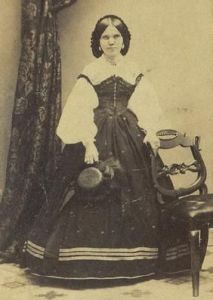 Pass, snuggled up against the side of Silver Hill. The only indication that a town ever existed there are two or three toppled chimneys. Vandals ransacked and destroyed most of the buildings. At one time the village consisted of a general store (where trappers and local Indians bartered), a saloon and a dozen or so cabins. The mining claim in Virginia City belonged to a large extended family, by the name of Bullard, who were the sole occupants. A stranger came into town and went to work in the mines for the patriarch of the family, John Bullard. The relationships in the family were rumored to be incestuous, with intermarriages and jealousies abounding, erupting in fights every Saturday night at the saloon. The stranger who had gone to work in the mine, fell in love with John Bullard’s youngest daughter, Virginia, for whom the village had been named, and vowed to take her away from the troubled community. However, before he could do so, a cousin, who had less than honorable intentions toward the damsel, challenged the stranger to a duel over the hand of the daughter. The stranger killed the cousin, and the town erupted in a gun fight and many of the Bullards were killed. The stranger captured Virginia from her cabin and started down the road from Silver Hill on horseback, when they were overtaken by two of her brothers on the road over the Old Pass. When the two brothers sighted the runaways, they reported that the stranger raised his hand, as if he wanted to negotiate with them. They gave him no chance to do so. They killed the stranger and left him beside the road, but not before Virginia got in the way of a bullet. She died before they could get her back to Virginia City. It is whispered among the locals that the stranger returns periodically, trying to get back to Virginia City to find his lost love. Sightings report that he usually miraculously prevents an accident of some kind by simply raising his hand. The man went by the name of Sonny Jordan.
Pass, snuggled up against the side of Silver Hill. The only indication that a town ever existed there are two or three toppled chimneys. Vandals ransacked and destroyed most of the buildings. At one time the village consisted of a general store (where trappers and local Indians bartered), a saloon and a dozen or so cabins. The mining claim in Virginia City belonged to a large extended family, by the name of Bullard, who were the sole occupants. A stranger came into town and went to work in the mines for the patriarch of the family, John Bullard. The relationships in the family were rumored to be incestuous, with intermarriages and jealousies abounding, erupting in fights every Saturday night at the saloon. The stranger who had gone to work in the mine, fell in love with John Bullard’s youngest daughter, Virginia, for whom the village had been named, and vowed to take her away from the troubled community. However, before he could do so, a cousin, who had less than honorable intentions toward the damsel, challenged the stranger to a duel over the hand of the daughter. The stranger killed the cousin, and the town erupted in a gun fight and many of the Bullards were killed. The stranger captured Virginia from her cabin and started down the road from Silver Hill on horseback, when they were overtaken by two of her brothers on the road over the Old Pass. When the two brothers sighted the runaways, they reported that the stranger raised his hand, as if he wanted to negotiate with them. They gave him no chance to do so. They killed the stranger and left him beside the road, but not before Virginia got in the way of a bullet. She died before they could get her back to Virginia City. It is whispered among the locals that the stranger returns periodically, trying to get back to Virginia City to find his lost love. Sightings report that he usually miraculously prevents an accident of some kind by simply raising his hand. The man went by the name of Sonny Jordan.
Mike’s hand began to tremble as he closed the reference book and stared out the window toward the pass.
Author’s note: This short story is based on a true account.
If you enjoyed this post, please share it with your friends and subscribe to my blog and newsletter below. You will receive my modern short story version of ‘Trapped: The Adulterous Woman’ in your thank you email.
The post Encounter on Snowy Mountain – Part 2 appeared first on Golden Keyes Parsons.
January 27, 2015
AUTHOR INTERVIEW – LENA NELSON DOOLEY
Our author interview today is with best-selling author, Lena Nelson Dooley. An award-winning author, Lena, has more 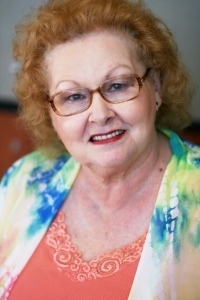 than 800,000 books in print. She is a member of American Christian Fiction Writers http://www.acfw.com/ and co-founder of the local chapter, ACFW – DFW. She’s also a member of Christian Authors Network, CROWN Fiction Marketing, and Gateway Church in Southlake, Texas.
than 800,000 books in print. She is a member of American Christian Fiction Writers http://www.acfw.com/ and co-founder of the local chapter, ACFW – DFW. She’s also a member of Christian Authors Network, CROWN Fiction Marketing, and Gateway Church in Southlake, Texas.
Don’t forget to leave a comment with your email address below, between January 27 and February 3, and be entered to win a free PDF download of copy of her newest book series, McKenna’s Daughters! We will announce the winner next week.
Tell us a little bit about yourself and your family.
I’ve been married to the love of my life for 50 years. We have two daughters and two sons-in-law, two granddaughters and two grandsons, one grandson-in-law, and two great grandsons, with another one expected in April. We all live in the Dallas/Fort Worth Metroplex, except the active-duty Army grandson. We love having everyone close by.
Your devotion and love for your husband and family are a testimony to everyone who knows you, Lena. Congratulations on your extended love story!
Tell us about your latest book, and how it came about.
Catherine’s Pursuit is book three in my McKenna’s Daughters series. The series is about identical triplets who were born on one of the last wagon trains on the Oregon Trail. Their mother dies giving birth to the sisters. Because of several circumstances, they are separated and raised in differing environments. Each book in the series is the story of one of the sisters. Maggie’s Journey is book one, and Mary’s Blessing is book two. These three stories percolated in my mind for several years before a publisher bought the series.
Share about your genre and why you write in this style.
I actually have been published in several genres—historical, contemporary, suspense, mystery, and pirate. This series is historical, of course. My style isn’t really a genre, but my branding statement is: Characters Who Grip Your Heart. All my stories are character driven.
Quite an accomplishment!
What inspires you?
Everything. I’m always taking notes of something I see that would make a good novel. I have more novel ideas than I’ll ever be able to write. Of course, I know God gave me the imagination, and He often drops ideas into my heart.
Isn’t that the truth? I have so many ideas that I’ll never get them all written.
Tell us about your writing process.
Most of my stories percolate in my mind and heart for awhile. I’m close to a seat-of-the-pants author. Plotting every single scene would drain all the life out of the story. I do have a timeline with events that must happen in the story. And that timeline changes sometimes as I write the story.
What are your writing goals?
I want to write stories that will touch people’s hearts as they entertain them. And I always want to please God with everything I write.
What do you wish someone had told you about writing?
The writing is the easy part. There’s also marketing. Selling the idea to a publisher (My agent does that. Thank you, Joyce Hart.).
Tell us something about yourself that nobody knows.
I’ve been very transparent for years, so I’m not sure is there is anything nobody knows about me.
What hobbies do you enjoy?
I used to knit, crochet, and do other crafts, but not much anymore. I also used to sew a lot, but now, it’s only occasionally.
I love to spend time with friends and with family. And of course, I read other authors’ books when I have time.
Thank you for being with me today.
Don’t forget to leave a comment with your email address below, between January 27 and February 3, and be entered to win a free PDF download of copy of her newest book series, McKenna’s Daughters! We will announce the winner next week.
www.facebook.com/pages/Lena-Nelson-Dooley/42960748768?ref=ts
www.facebook.com/lena.nelson.dooley
http://lenanelsondooley.blogspot.com/
http://www.pinterest.com/lenandooley/
www.goodreads.com/author/show/333031.Lena_Nelson_Dooley
https://twitter.com/lenandooley
If you enjoyed this post, please share it with your friends and subscribe to my blog and newsletter below. You will receive my modern short story version of ‘Trapped: The Adulterous Woman’ in your thank you email.
The post AUTHOR INTERVIEW – LENA NELSON DOOLEY appeared first on Golden Keyes Parsons.
January 23, 2015
Encounter on Snowy Mountain – Part 1
Part 1
A Short Story By Golden Keyes Parsons

Mike peered out the window at the street lamp. A hazy halo of light illuminated his truck through the swirling snow. Pulling his jacket from the back of his chair, he slammed the door of his office and hurried toward the back door of the church. Late again. I should have left 30 minutes ago. Kim’s not going to be happy.
It was nights like this he wished he had taken the job offer at the large church in a city farther south. A freezing blast of wind and snow surged into the hallway as he pushed the door open. He stepped back into the warm shelter of the foyer while he dug in his pockets for his hat and gloves. Ducking his head, he opened the door once more and plunged into the cold toward his pickup. Something moved in the shadows. He shielded his eyes against the biting snow. “Hello? Who’s there?”
A dark figure, huddled against the wind, stepped into the halo of light from the street lamp. “Can you tell me how far it is to Virginia City from here?”
The young man, his scraggly beard sporting white crystals of ice and snow, pulled the collar of a long, tattered, gray coat around his neck. He wore no gloves. A dirty muffler covered his head.
“There’s no place named Virginia City around here.”
“Oh, yes, I’m sure of it—just over the pass.” The stranger thrust his hands into his pockets. “How far is it to the pass?”
“I’ve lived in these mountains for over twenty-five years, and I’ve never heard of Virginia City.” Mike opened the door on the driver’s side. “And besides that, you’ll never get over the pass tonight in this storm.” He scooted into the seat and started the engine.
You can’t leave this man out here in a storm like this.
Mike hung his head over the steering wheel. Stepping out on the running board, he looked over the top of the cab.
“Get in, my friend, and I’ll see what we can find out.”
“Thank you, but I just need to know how far it is to Virginia City.”
“Sir, I don’t know, but however far or near it is, you can’t go anywhere tonight in this weather. Why don’t you come home with me for the night?”
The young man hesitated and looked around the parking lot at the mounting snow. The bass guitar of a band from a nearby bar punctuated the late night cold air. “Well, uh, okay. Thank you.”
Mike got in the truck and pushed the passenger door open from the inside. He turned the heater fan on full blast. “The cab will be warm shortly. Doesn’t take long.” He smiled at the stranger.
The young man returned his smile, revealing missing teeth on the side. “I’m much obliged.”
Mike wrinkled his brow and chuckled at the antiquated language. He put the truck in four-wheel drive, backed out of his parking place and crept cautiously onto the road. “Better buckle up.”
The stranger appeared bewildered.
“Your seat belt—buckle it.” Mike touched the receptacle. “Pull the shoulder strap over and put it in here. Better safe than sorry.”
The young man fumbled with the strap and finally got it buckled.
“What’s your name?”
“Folks call me ‘Sonny’.”
“Okay, Sonny. Where are you from?”
“Virginia City.”
“Oh.”
Mike sighed and decided he wasn’t going to debate anymore tonight on the location of Virginia City. He wanted to get home and out of the blizzard. He squinted his eyes in an attempt to see the road through the “whack-whack” of the windshield wipers. The wind blew the snow almost horizontal into the headlights of his pickup.
“Where are the snow plows? I can’t see the road.” Although he had driven up and down the mountain road for years, a sudden snowstorm that blinded one’s vision and hid the road always unsettled his nerves.
“We’ll be fine. You’ll see.”
Mike stared at the confidence of the young man who just moments before had been uncertain which direction to go. Sonny began to hum an old folk tune.
“You have a nice voice. I’m in charge of the music at our church.”
“I know.” He continued to hum.
Ice began to collect at the base of the windshield. Mike turned the defrost gauge to full blast. A small semi-circle began to clear over the frosted glass.
Mike knew Kim would not be happy about the unexpected visitor. Their guestroom was always ready, but Kim liked to be prepared, and this stranger was—well—strange.
Sonny didn’t talk much. He responded respectfully to Mike’s questions, but offered no additional information about himself. His eyes were distant, and he would not look directly at Mike. He appeared emaciated and hungry and had no bags with him.
“Are you hungry? My wife has probably already eaten, but I could rustle something up for you.’
“No suh, I’m fine.” He had a definite southern accent.
“When was the last time you had anything to eat?”
“Really, I’m fine. Isn’t the pass back the other way?”
“Uh, yeah, but I don’t live much farther. I’ll be glad to take you to the bus station tomorrow, or I’ll even drive you over the pass and show you—there really is no Virginia City around here.”
“Thank ya kindly.”
They started down the steepest part of the long, winding road before it flattened out at the base of the mountain. Suddenly, the truck began to fishtail from one side of the road to the other. Headlights from an oncoming car poked through the blowing snow. Mike fought to gain control, but the truck careened toward the edge of the cliff. Branches of pine trees slapped against the windshield as they spun around. “Hold on! Looks like we’re going for a ride!”
Sonny raised his hand toward the windshield. Abruptly the truck righted itself and stopped, facing the opposite direction, beside a tall pine tree. The advancing car whooshed by, spraying snow over the hood of the truck.
“That was close.” Mike put the truck in park and turned to stare at Sonny. “It’s almost as if you commanded the truck to stop. What did you do?”
“Nothing, really. Just prayed.” He stared at Mike. “You do believe in prayer, don’t you? You being a pastor and all.”
“Yeah, sure I do.” Mike muttered, put the truck in gear and pulled back onto the road. “That was some mighty, powerful prayer. I thought we were going down the side of the mountain.”
Silence settled in the cab for the rest of the ride. They turned down the road where Mike lived. “This is it. See, I told you it wasn’t very far, although it seems like it in a storm. Everything will look different in the morning.” Mike pulled up to the front door. “Get out and wait for me on the porch. I’ll pull the car into the garage.”
The young man got out of the truck and followed Mike’s instructions, stomping the snow from his old boots. After parking the car in the garage, Mike ran up the walk and took off his hat, showering snowflakes down. “Lookee there. It’s snowing so hard, it’s already covered up your tracks.”
The stranger ignored Mike’s comment. “Nice house.”
(Come back and visit next week to read PART TWO on the blog.)
If you enjoyed this post, please share it with your friends and subscribe to my blog and newsletter below. You will receive my modern short story version of ‘Trapped: The Adulterous Woman’ in your thank you email.
The post Encounter on Snowy Mountain – Part 1 appeared first on Golden Keyes Parsons.
January 20, 2015
GUEST BLOGGER – KATHY COLLARD MILLER
I am delighted today to welcome a long-time acquaintance to my blog, Kathy Collard Miller. Our paths have crossed for many years as both of us have been associated with CLASSeminars as speakers and authors. Kathy is one of the most gracious women you’ll ever meet with a heart that presses in hard to the Father. Her new book, Never Ever Be the 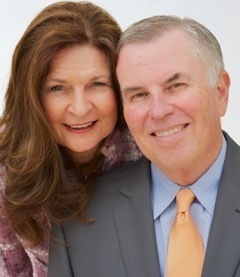 Same: A New You Starts Today (Leafwood Publishers), co-written with her husband, Larry, offers Christians hope that they can change their destructive patterns of behavior through identifying their sinful self-protective strategies and then being empowered to trust God instead. The book includes biblical principles, insightful stories, and helpful instruction. It also provides discussion questions that can be used by individuals or groups. Welcome, Kathy!
Same: A New You Starts Today (Leafwood Publishers), co-written with her husband, Larry, offers Christians hope that they can change their destructive patterns of behavior through identifying their sinful self-protective strategies and then being empowered to trust God instead. The book includes biblical principles, insightful stories, and helpful instruction. It also provides discussion questions that can be used by individuals or groups. Welcome, Kathy!
What Does Holiness Feel Like?
by Larry Miller and Kathy Collard Miller
Have you ever wondered what holiness feels like? Malachi 4:2 expresses what God might like us to experience when we see the fruits of holiness that he is producing in our lives: “But for you who fear my name, the sun of righteousness shall rise with healing in its wings. You shall go out leaping like calves from the stall.”
Have you ever “leapt” in your spirit after recognizing that your trust in God had expanded to include forgiving someone who hurt you because you recognize how much you’ve been forgiven? Or giving grace by listening with understanding to a friend share a problem—even though she usually ignores you—because you’ve experienced God’s grace? Or resting calmly in a situation that normally drives you over the edge because you know God is in charge? Or being patient when your child spills milk at the dinner table for the third time because you know God has repeatedly been patient with you? We’re no longer fenced in and held in bondage by sinful patterns like worry, fear, selfishness, hate, resentment, and so many other binding things.
The NIV words it: “And you will go out and frolic like well-fed calves.” Oh, to frolic like well-fed calves! Can’t you just picture it? This calf isn’t emaciated; instead it is healthy and well-nourished. It has drunk often from the fresh, flowing spring. That seems to give the idea that it is assured that all its real needs are supplied, and it is free from concern about receiving love and care.
For you and for us, that’s the foundation of holiness: believing and trusting in God’s sovereign love that provides everything we truly need; therefore, we don’t need to demand it from people who are needy themselves.
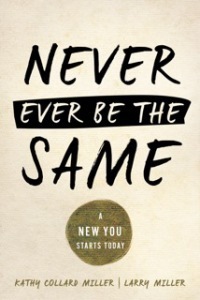 We are still growing in this of course, for as long as we live, but the joy that comes when we cooperate with God is like skipping out of a pen where we’d been restrained. We do not obey in order to have that feeling, but how generous of God to give us the reward to bless us.
We are still growing in this of course, for as long as we live, but the joy that comes when we cooperate with God is like skipping out of a pen where we’d been restrained. We do not obey in order to have that feeling, but how generous of God to give us the reward to bless us.
Are you like a calf encircled in some stall? Could it be bitterness, a critical spirit, a sense of entitlement, people pleasing, or self-absorption? Do you want to break free? You can in God’s power through Repentance and Surrender. Receive the healing. Get ready to leap, gambol, and frolic. God is opening the gate.
As you think of God opening your “gate” of holiness, what does that feel like for you?
Kathy Collard Miller is the author of 50 books and has spoken in 31 states and 8 foreign countries. Kathy and her husband, Larry, have been married 44 years and he is a retired police lieutenant who also speaks and writes. Larry and Kathy speak often together and individually on a variety of topics. They live in Southern California, and have two grown children and one grandson. Visit them at www.LarryAndKathy.com and www.KathyCollardMiller.com.
Never Ever Be the Same is available at your local Christian bookstore and in both print and digital versions at:
To Purchase on AMAZON click here
To purchase from BARNES AND NOBLE click here
If you enjoyed this post, please share it with your friends and subscribe to my blog and newsletter below. You will receive my modern short story version of ‘Trapped: The Adulterous Woman’ in your thank you email.
The post GUEST BLOGGER – KATHY COLLARD MILLER appeared first on Golden Keyes Parsons.
January 16, 2015
The Porch – Part 2
Part 2 (Click HERE to Read Part 1)
A Short Story By Golden Keyes Parsons

He proposed to me on the porch, and we married soon after. The wedding was at our church, but we celebrated the reception at the house and greeted our guests on the porch. My parents hired a professional landscaper for the occasion and, of course, the porch boasted a brand new coat of paint—white this time. Honeysuckle twirled around the posts of the porch and lilies of the valley poked from every bare spot along the railings. We fled down the steps of the porch to our honeymoon.
He was drafted and went to war just months after we married. I was pregnant and went back home to live with Mom and Dad while he was overseas. I pulled my diary from the hiding place and wet its pages with my tears of loneliness. Sitting in the porch swing, I began to journal again. I started a baby blanket, a safe yellow, as I rocked in the same chair where my grandmother had crocheted dozens of them.
One morning I heard heavy footsteps on the porch. I peered through the curtains and saw the glint of a military belt buckle. My mother answered the soft knock and went out on the porch to speak with them. I stepped to the screen door, dazed at the horrible news I knew they had to deliver. I collapsed into the arms of the military chaplain as we stood huddled on the porch.
Clusters of family and friends gathered on the porch speaking in hushed tones after the funeral. I moved numbly among them and ended up by myself in the swing, fingering the long forgotten carvings on the wooden arm. I wanted everybody to leave so I could pull my journal out of its hiding place and escape in the safety of the familiar pages. I wanted the Presence to come and take this wrenching heartache away.
I brought our son home to the porch, rested him in the same mahogany cradle that had cuddled my baby brother. I swung him in the same porch swing that I had swung in as a little girl. Life had hard edges to it now, and I didn’t know how to get around them without scrapes and wounds. I knew one thing, though. I knew I would stay, at least for a while, with my parents, and watch my son play on the porch.
My father died of a heart attack that fall while he was raking the burnished red maple leaves that carpeted the front yard every year. He made it up the steps of the porch before he collapsed. My mother tried to give him CPR as I called the ambulance, but it was too late. He was already gone. The paramedics, all of whom we knew—some childhood friends who had congregated on the porch through the years—wiped tears from their eyes as they carried my father down the steps of the porch on a gurney.
Now my mother needed me as much as I needed her, so we stayed together in the house, the Presence on the porch enveloping us in invisible arms.
Somehow I never got around to remarrying. I always intended to do so, but it never seemed to be the right time or the right man. Oh, plenty of suitors came and went, both for my mother and myself. They stood on our porch, and sat in our swing, but the years flew by, and I was busy raising my son and working. A new marriage just never seemed to fit.
I watched my son dig in the flowerbeds beside the porch and, when he got older, watched him grab his sled from the side and race to the snow-covered hill. I heard myself sound exactly like my mother as I called after him to be careful of the creek at the end of the run. I rushed to his side when the old swing dumped him on the hard wooden floor. We had birthday parties with clown cupcakes and cakes with baseball players and scavenger hunts that always ended up on the porch. I watched as girls began to come onto the porch to sit with my son in the swing.
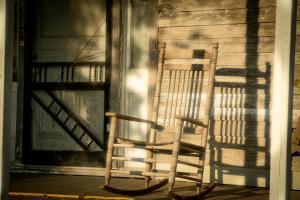 Then he was off to college and married soon after graduation. He brought my grandbabies back to my lap, and I rocked them in the old wicker rocker on the porch. My mother and I sat on the porch in the dusky evening and looked at each other with increasingly wrinkled eyes and wondered where the years had gone. We would stand at the railing of the porch and watch for the headlights of my son’s car to pull in the driveway for Thanksgiving or Christmas or Easter.
Then he was off to college and married soon after graduation. He brought my grandbabies back to my lap, and I rocked them in the old wicker rocker on the porch. My mother and I sat on the porch in the dusky evening and looked at each other with increasingly wrinkled eyes and wondered where the years had gone. We would stand at the railing of the porch and watch for the headlights of my son’s car to pull in the driveway for Thanksgiving or Christmas or Easter.
A few more years and then she was gone. And I was alone. Perhaps I should have remarried. Now the candidates were too few, and romance for me, seemed more a bother than a joy.
I know it’s simply the silly musings of an old lady, but I still journal when I sit on the porch. And I still leave it on the porch. Not in the hiding place anymore, but in a drawer in a table beside a new wicker rocker. How many journals have I filled? Will anyone even care to read them when I’m gone? I pick up my current journal and pen, and I rock and listen to the neighborhood noises in the evening.
There are no children anymore—riding their bikes on the sidewalks and calling out to one another, “Watch this!” Our community is growing old, like the houses, and the young ones are moving away. The occasional whir of a lawnmower breaks into the cricket concert, but most of the time the twilight hours are quiet.
My pen falls out of my hand and clatters onto the floor of the porch. Why don’t I pick it up? I sit in the swing and look at myself in the rocker and wonder if my son will remember me as a brunette. I am so gray. I didn’t realize my hair was that gray. I urge the familiar swing into gentle motion and realize that someone will come soon and find me in the rocker on the porch.
I wonder what I should do. May I leave before they come for me? Even before the question is fully formed in my mind, a peaceful Presence sits down beside me on the swing and wraps a comforting arm around my shoulder. “It’s time to leave the porch,” he whispers. I nod and stand up and let Him guide me down the steps. An indescribable velvet cloak of peace surrounds me. I turn and bid a final farewell to the porch.
If you enjoyed this post, please share it with your friends and subscribe to my blog and newsletter below. You will receive my modern short story version of ‘Trapped: The Adulterous Woman’ in your thank you email.
The post The Porch – Part 2 appeared first on Golden Keyes Parsons.
January 13, 2015
INTERVIEW WITH CYNTHIA RUCHTI
Today I am interviewing fellow author, Cynthia Ruchti. Cynthia Ruchti tells stories of Hope-that-glows-in-the-dark through her novels, novellas, devotions, and nonfiction, and through speaking for women’s events/retreats and writers’ conferences/workshops. She draws from 33 years of experience writing and producing the 15-minute daily radio broadcast, “The Heartbeat of the Home.” Her books have received recognition from RT Reviewers’ Choice, Retailers’ Choice, and Family Fiction Readers’ Choice as well as finalist honors in ACFW’s Carol Awards and the Gayle Wilson Award of Excellence, among others. She serves as Professional Relations Liaison for American Christian Fiction Writers, is a board member of the Deliver Hope ministry, and is part of the worship team at her church. She and her husband live in the heart of Wisconsin, not far from their three children and five grandchildren. Welcome, Cynthia! I’m so glad to have you here today!
Don’t forget to leave a comment below, with your email address, between January 13 and January 20, and be entered to win a free copy of her best-selling book, All My Belongings! We will announce the winner next week.
Tell us a little bit about yourself and your family.
We live in the heart of Wisconsin in a 100+ year old farmhouse on ten acres. My husband studied fisheries biology in  college, so we have a half-acre pond that he designed and stocks with bass, blue gills, and crappies. Our three children and five grandchildren live about fifteen minutes away. I worked as a stay-at-home mom after seven years as a lab assistant in a chemistry lab in a large medical facility. When our middle son was two, I was given an exceptional opportunity to write and produce a 15-minute radio broadcast—despite having no training, no experience, no equipment, no thought of ever doing such a thing. That broadcast recently retired after thirty-three years on the air!
college, so we have a half-acre pond that he designed and stocks with bass, blue gills, and crappies. Our three children and five grandchildren live about fifteen minutes away. I worked as a stay-at-home mom after seven years as a lab assistant in a chemistry lab in a large medical facility. When our middle son was two, I was given an exceptional opportunity to write and produce a 15-minute radio broadcast—despite having no training, no experience, no equipment, no thought of ever doing such a thing. That broadcast recently retired after thirty-three years on the air!
In 2000, I started seriously studying the idea of writing full-length fiction. I’d been writing radio drama (fiction) and devotional thoughts (nonfiction) all those years. I can see how the radio years equipped me in many ways for what I’m doing now—writing novels, novellas, devotions, and nonfiction.
Tell us about your latest book, and how it came about.
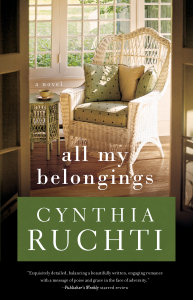 All My Belongings is the story of a woman desperate to escape the reputation her father brought on their family name, desperate to discover a place to belong. But no matter how far she runs, his reputation finds her. And the fragile hope that had started to form is shaken to its core by the choices that confront her.
All My Belongings is the story of a woman desperate to escape the reputation her father brought on their family name, desperate to discover a place to belong. But no matter how far she runs, his reputation finds her. And the fragile hope that had started to form is shaken to its core by the choices that confront her.
In its earliest forms in 2005 and before, this was a much different story. I describe it as a progression from melodrama to drama. So much changed. But at the heart it remains a story of what it means to truly belong.
Share about your genre and why you write in this style.
I write women’s fiction, in particular family angst. I tell stories hemmed in hope, stories of Hope-that-glows-in-the-dark. The books address tough topics, but in a tender way.
Years ago, I thought sweet historical romances would be my forte. Although I might enjoy writing those stories, I feel most comfortable in the women’s fiction genre, with a leaning toward the kind of stories that feel lyrical and yet real.
What inspires you?
I’m inspired by music, by overheard conversations, by curious little observations. Nature inspires me. My children and grandchildren are an endless source of wonder. Tiny details—a phrase, a word, a title, a random thought—can inspire me and form the seedling of a future story. Heightened powers of observation coupled with heightened empathy creates lots of inspiration!
Tell us about your writing process.
I’ve been blessed with a fairly steady stream of deadlines since my first novel was published in 2010. That, paired with my role as professional relations liaison for ACFW (American Christian Fiction Writers) and the responsibilities associated with that position, means I’m rarely writing a book—whether fiction or nonfiction—at a leisurely pace. I’m working on edits of one while sketching out the plot and characters for another while working on the discussion questions for a third while brainstorming about a novel not yet proposed. I collect bits of the story—a sentence, a quote, a scene, a character trait—in a file that grows until it bulges. But I’m not a detailed outliner. I love the discovery that unfolds as I write from a snatch of an idea. Yes, that can give me fits at times. That’s when I phone a friend. She talks me through the impossibilities I’ve created for myself. I’ve resigned myself to the idea that I won’t have ideal conditions for writing—a year sequestered in a quiet cottage on a tropical island with gourmet meals delivered to the door and daily maid service. The stories will instead by written in and amongst life’s interruptions and challenges.
Many of those challenges become plot lines.
What are your writing goals?
Great question! Some of my goals are discussions only God hears. And I’m grateful to have seen several of my writing goals met already, which just means I need to practice dreaming bigger, God-sized dreams. Any goals related to sales numbers are connected to the ability to keep writing and publishing, and to reaching more readers with hope in story form.
I love every aspect of this process, especially connections with readers. So I have set goals regarding even more speaking engagements that put me in contact with readers and readers-to-be.
What do you wish someone had told you about writing?
I wish someone had told me how large a role waiting would play in the process. But it isn’t a fruitless waiting. God is always working behind the scenes, even when it doesn’t appear so on the surface. I would have fretted less in the early days if I’d known to expect Waiting to be such a prominent character in the story of writing.
Tell us something about yourself that nobody knows.
I was a majorette in junior high and high school. You know, that fact has had very little effect on my adult life. I can twirl a wooden spoon or a chopstick, but it’s amazing how infrequently that skill is required.
I know! I rarely get asked to do a cheer for a football team either these days. I probably would injure myself anyway!
What hobbies do you enjoy?
Reading and music are important to me. I know how to knit but rarely take the time these days. I’m a bargain hunter in second hand stores, which is both a hobby and a necessity.
Love shopping in thrift stores. Too bad we live so far apart.
Where can your readers contact you?
My web site: www.cynthiaruchti.com
www.facebook.com/CynthiaRuchtiReaderPage
www.pinterest.com/CynthiaRuchti
I enjoy interacting with readers and encouraging writers.
Thank you for inviting me to stop by. It’s much appreciated. I’m looking forward to any additional questions or comments your readers might have to add to the discussion.
Thank you, Cynthia, for being with us today. It’s always fun learning about the writing process and lives of other authors.
Don’t forget to leave a comment below, with your email address, between January 13 and January 20, and be entered to win a free copy of her best-selling book, All My Belongings! We will announce the winner next week.
If you enjoyed this post, please share it with your friends and subscribe to my blog and newsletter below. You will receive my modern short story version of ‘Trapped: The Adulterous Woman’ in your thank you email.
The post INTERVIEW WITH CYNTHIA RUCHTI appeared first on Golden Keyes Parsons.
January 9, 2015
The Porch – Part 1
Part 1
A Short Story By Golden Keyes Parsons
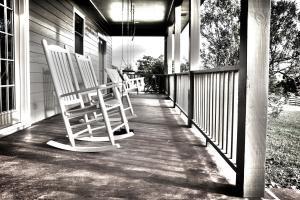 I was only three years old the day I dashed up the steps of the porch and burst into the parlor to peer into a dark mahogany cradle. My baby brother blinked his unfocused, newborn eyes at me and nestled down inside the folds of a soft blue blanket. My mother smiled. The shadows from the gathering dusk danced through the trees and landed on the faces of my mother and brother. Life was good.
I was only three years old the day I dashed up the steps of the porch and burst into the parlor to peer into a dark mahogany cradle. My baby brother blinked his unfocused, newborn eyes at me and nestled down inside the folds of a soft blue blanket. My mother smiled. The shadows from the gathering dusk danced through the trees and landed on the faces of my mother and brother. Life was good.
It was a wrap-around porch that had been repainted so many times that the current in-vogue color clung to chipped remnants of yesteryear coats. Hanging baskets of Boston fern swung gently in the early evening breeze and wrought iron plant stands groaned under a heavy load of clay pots, brimming with red, pink and white begonias, impatiens and petunias. Lilac bushes lined the railing on the sides of the porch and threatened to overtake the flowerbeds every spring with their profuse, fragrant purple blossoms. No one really cared. The lavish beauty of the bushes earned their tenured place in the garden.
Before the advent of air conditioning and television, the porch was a gathering place for the family to cool off after supper with a glass of iced tea. The architectural style of porch was what the younger generation built onto their new suburban homes, a “wrap-around porch,” hoping to recapture the ambiance of a gathering place. But the frantic families of today simply rush across the reconstructed porches on the way from their air-conditioned houses to their air-conditioned cars to dine at the latest air-conditioned casual dining restaurant.
My grandmother lived with us and spent most of her days on the porch when weather permitted. She rocked back and forth in the creaking wicker rocker, expounding on life and crocheting blankets for whichever new baby was currently expected in the small rural town. I sat in the porch swing, played with my paper dolls and half listened to her recitations while I swung as high as I dared. The capricious swing concealed hidden danger and dumped the occupant unexpectedly if one swung too high. I learned that lesson the hard way.
In the wintertime, our sleds rested against the door on the side of the porch. On bright crystal mornings when we awoke to fresh snow, we tumbled down the stairs, pulled on our snowsuits and mittens, grabbed the sleds off the porch and ran to the hill behind our house to be the first to test the slope. Without fail, my mother called after us to be careful to not plunge into the creek at the end of the run. After a morning of skidding sideways toward the bottom of the hill, squealing with half-terror and half-glee as we avoided hurtling over the bank into the icy water, we trudged back to the porch, dragging our sleds behind us. Wisps of hot chocolate vapor beckoned to us from white porcelain cups lined up on the counter as we threw our snow gear into a wet pile on the floor beside the kitchen door.
One spring afternoon after the winter thaw, I walked home from school and sat on the rough, splintery front steps of the porch. Holding my glasses on my nose with my finger, I became lost in a story from my latest library book. The banging of the screen door awoke me from my fantasy world as my mother ran past me, screaming and crying, to the pastor’s house across the street. I stood, my reader tumbling unnoticed into the flowerbed beside the steps. I walked to the low window on the front of the porch and peeked into my grandmother’s bedroom. She lay still, too still, face down in her pillow. I froze beside the window and watched in little-girl, wide-eyed wonder at the parade of people dashing in and out of the house—up and down the steps of the porch. I sat down in her rocking chair and became aware of a Presence that came and stood behind me. I felt arms of comfort around me. I picked up my grandmother’s latest woolly project and smelled it. The jasmine fragrance of her toilet water lingered in the soft threads. I wished I’d listened more carefully to her life lessons.
 Not long after that, I began to keep a diary like all my pre-teen girlfriends. But I only wrote in my diary when I was in the porch swing. I wrote of the turbulence of pubescent emotions. I wrote of hurts and wounds from friends. I wrote about the Presence that I felt when I listened in the silence of the early morning or shadowy twilight. I found a loose board around the corner, on the side of the porch, behind one of the plant stands, and kept the diary in a tin box, hidden from my little brother’s prying eyes.
Not long after that, I began to keep a diary like all my pre-teen girlfriends. But I only wrote in my diary when I was in the porch swing. I wrote of the turbulence of pubescent emotions. I wrote of hurts and wounds from friends. I wrote about the Presence that I felt when I listened in the silence of the early morning or shadowy twilight. I found a loose board around the corner, on the side of the porch, behind one of the plant stands, and kept the diary in a tin box, hidden from my little brother’s prying eyes.
I abandoned my coke-bottle-bottom glasses and matured into a teenager. Boys began to hang around the porch—leaning their bikes against the railing, then parking their cars out front.
Some mustered the courage to amble onto the porch and sit in the swing with me until evening turned into the murky cover of darkness. My father would flip on the light if I stayed on the porch too long in the nightfall. I experienced the surprise of the flood of emotions that came with my first kiss while sitting on the porch. Many kisses followed from many different boys. Declarations of forever after were etched into the armrest of the swing, and I truly believed every one of them.
One day I brought to the porch a special young man I met on a blind date in college. I shared with him my secrets that lay hidden in the corners and crevices of the porch—the whispers that tarried in the creaking of the swing and the rustle of the lilac bushes; the wisdom that had fallen from my grandmother’s lips and how I wished I could remember more of what she’d said to me; my diary and its hiding place…
(Come back and visit next week to read PART TWO on the blog.)
If you enjoyed this post, please share it with your friends and subscribe to my blog and newsletter below. You will receive my modern short story version of ‘Trapped: The Adulterous Woman’ in your thank you email.
The post The Porch – Part 1 appeared first on Golden Keyes Parsons.
January 6, 2015
Interview With Author Lisa Wingate
This week I am delighted to welcome Lisa Wingate to my weekly interview spotlight. Lisa is a prolific, award-winning, best-selling author who is a Central Texas gal. Her books have skyrocketed to the top of the Christian fiction market in the last few years. Because our 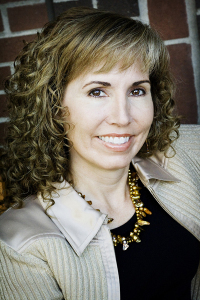 paths seemed to keep crossing in our professional organizations and the fact that we live in the same area, we’ve become friends. She is very generous with her time and expertise. I know you will enjoy getting to know a little more about her. Welcome, Lisa!
paths seemed to keep crossing in our professional organizations and the fact that we live in the same area, we’ve become friends. She is very generous with her time and expertise. I know you will enjoy getting to know a little more about her. Welcome, Lisa!
Don’t forget to leave a comment below, with your email address, between January 6 and January 12, and be entered to win a free copy of her best-selling book, Wildwood Creek! We will announce the winner next week.
First, tell us how were you able to write 20 books in 12 years with a family to take care of?
I’ve always loved to write, but I didn’t get serious about freelance writing and selling until after I’d graduated college, married, and started a family. I wrote and sold various smaller projects between naps, diapers, and playgroups. And when the boys were older, during soccer practices, in carpool lines, while helping with homework, and in all sorts of other situations.
People often ask me if I need quiet in order to write. With boys in the house, if I’d waited for quiet, the writing would never have happened. I learned to lose myself in a story amid the noise of life and I loved it that way.
I asked myself what makes a story last, what really makes a story worth telling and worth reading? I wanted to write books that meant something, that explore the human soul.
One day, I came across a notebook in which I’d written some of my grandmother’s stories. I’d never known quite what to do with those stories, but I knew they were significant in my life. When I rediscovered the notebook, I had the idea of combining my grandmother’s real stories with a fictional family who is like and unlike my own family. That little germ of an idea became my first women’s fiction novel, Tending Roses.
Now that the boys are grown and the house is quiet, I’m redefining the writing routine again. Just as in books, life is a series of scenes and sequels, beginnings and endings, and new discoveries.
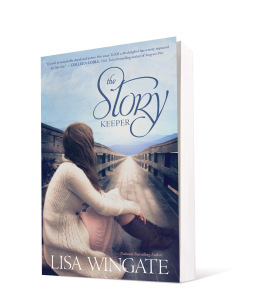 Tell us how your latest book,The Story Keeper, came to be.
Tell us how your latest book,The Story Keeper, came to be.
After turning in the first draft of The Prayer Box, I literally dreamed a story about a young New York editor who finds a forgotten manuscript partial on an old slush pile. She’s captivated by the tale of Sarra, a young Melungeon girl, trapped by dangerous men in turn-of-the-century Appalachia. Sarra’s circumstances in some ways mirror the editor’s painful childhood in the Blue Ridge Mountains. In my dream, the search for the manuscript’s author took her back home after many years away, leading her to a place called Mirror Lake, deep in the mountains.
When I woke, I poured the story concept onto paper, all at once, complete. Over the course of twenty-three novels, I’ve never done that before, and I knew that this story was something special. I was scheduled to meet with my editor the next week, so I took the synopsis along and told her about the dream and the story concept. We agreed to substitute it for the book that was to follow The Prayer Box.
When I contacted my friend and long-time mentor, Ed, to tell him I was writing another Carolina-based book, so I had another project for the two of us, he was elated. I described the location as I’d dreamed it, and gave him the name of the place in the dream – Mirror Lake. Imagine my surprise when Ed wrote back, “The name Mirror Lake really brings back wonderful memories that span time from the sixties to the present. When I was at Clemson, sometimes during the winter, when one of my friends could get a car, we would go to Highlands to ice skate on Mirror Lake. If we could get some dates to go with us, that was all the better. While I didn’t own ice skates nor could I skate, I loved to watch others skate. Mirror Lake and the Highlands area were beautiful places. Those were some great times.”
When that email arrived, I became fully convicted that this story was meant to be. During last year’s book tour, Ed and I took time to drive through the Blue Ridge together, visit Pisgah, Mirror Lake, Stumphouse Tunnel, and many of the old places Ed remembered. We hiked, talked, photographed, and finished our trip by passing through Clemson, where the editor character in the story was given a life-changing scholarship that frees her from family patterns limited by poverty, geographic isolation, and the control of the Church Of the Brethren Saints.
I’d heard fiction authors talk about instances like this–dreaming of a story or a character–and honestly I thought it was a bit bizarre. Honestly, I didn’t really believe them or thought they were highly exaggerated. That is, until I dreamed about one of my own characters who basically told me in my dream that I had misnamed him. I got up the next day, went straight to my computer and renamed the character! So, those of you reading this account, these kinds of things really do happen to fiction authors.
Every book teaches lessons. The Story Keeper is a powerful tale. What are the lessons behind the book?
In many ways, The Story Keeper is an examination of self-identity. It’s about the many masks we wear, where those masks come from, and whether we can leave them behind and become fully authentic. So often, in rejecting the roles our childhood experiences have taught us, we only put on other masks. In the story, Jen believes she has left behind the girl who was raised in poverty in Appalachia and forced to comply with the harsh and cultish practices of the tiny Church Of The Brethren Saints. But in reality, even hundreds of miles away in New York City working her dream job as an editor, Jen’s in hiding from her past and all the painful questions of her childhood.
When she discovers the partial manuscript of The Story Keeper on her desk, she comes face-to-face with the tale of a young girl living a similar life over 100 years ago. That discovery breaches the mask. What Jen really finds in that manuscript isn’t the story of a 16-year-old Melungeon girl trapped in Appalachia at the turn of the century; it’s her own story. That’s why Jen is compelled to go back to the Blue Ridge Mountains in search of the rest of the story. She’s looking for her own truth, for the self she abandoned due to the wounds of her childhood.
That’s what stories can do for us. They can break us open in ways we could never have imagined. I hope that people take away two things away from The Story Keeper. First, on a basic level, I hope that the historical thread in the novel is a reminder of the value of stories and their truly life-changing potential. Our stories shouldn’t go untold. They shouldn’t be lost.
On a deeper level, I hope Jen’s experience resonates with readers who have in some way surrendered to the wounds of a painful childhood. Life behind the mask amounts to slow suffocation. It’s another form of allowing other people to dictate who you are and what you believe. Letting go is a risk, but on the other side of that process lays light, freedom and the glory hour Jen finally senses in the end of the book. I hope that’s what people take away from The Story Keeper. Our lives have purpose, but to fulfill that purpose we must first claim ourselves.
Did your experience as a published author help you to write a character who works in the publishing industry? Was that aspect of the story fun or challenging?
For me, writing about New York publishing from an insider’s point of view was the most fun part of the novel! Over the years, I’ve written for publishers based in New York and several other cities. Every house is different, but there are certainly commonalities in any kind of publishing. It’s an interesting world – a mix of glamor and achingly hard work, of mundane tasks and the Eureka of discovering occasional gold nuggets.
While I had fun dreaming up the uniquely powerful, yet family-owned publishing company that is Vida House in the novel, I’ll admit, it was also a little intimidating to write about the secret inner workings of editors’ lives, all the while knowing that when I was finished, I’d have to turn the manuscript over to… gulp… an editor!
Fortunately, the manuscript passed the agent-and-editor test. Not only that, but friends in publishing loved the idea of tripping over a mysteriously wonderful submission that’s been languishing on a slush pile for 20 years. A fascinating manuscript written by a mysterious author who lives somewhere in the beautiful Blue Ridge Mountains is the ultimate literary gold nugget.
If you could only tell aspiring novelists one thing, what would it be?
Enjoy the time of writing “just for you.” There’s something magical about the purity of writing just because you have a story inside you and you want to put it on paper. The story and the characters are the only things in your head as you work. After you sell your first book, that state of being alone your story doesn’t exist anymore. Along with the story in your head, there are editors, deadlines, book reviewers, readers, financial considerations, agents, contracts, and so forth. All of those are wonderful things. They’re part of our end goal of being published and sharing our stories with the world, but it’s so worthwhile to be cognizant of the gifts of each part of the journey and the purity of its beginning.
Please explain The Sisterhood of the Traveling Books!
In the last months leading up to the September release of The Prayer Box, we (and that’s the royal we, because I can’t remember whose idea it really was) hatched this crazy idea to send 17 early copies of The Prayer Box on journeys all over the country in what we dubbed The Sisterhood Of the Traveling Books. Each traveled through the mail in a Sister Circle of readers. The participants read, they jotted their thoughts right in the pages when they found passages that struck a chord or triggered a memory, they snapped a photo or two, and then they send the book on to the next sister.
The results were amazing, inspiring, and from an author’s point of view, truly heartwarming. The Sisters enjoyed the book in a whole new way because they were reading it together, forming connections, sharing memories, building friendships, linking in their own life experiences by leaving comments in the book. It’s proof of what we all know intuitively. Even those experiences we only live in the pages of a book actually mean more when we share them. The project took on a life of its own in ways we never anticipated, and it has been, without a doubt, the most fun and rewarding thing we’ve ever done in advance of a book.
This year, The Story Keeper traveled in the Sisterhood Of the Traveling Books, visiting towns and cities in over thirty states. Again, the experience was both fun and heartwarming. Books form such amazing connections between us. Others who’d like to get a sense of the journey can find out more on The Sisterhood of the Traveling Books facebook page https://www.facebook.com/groups/SisterhoodOfTheTravelingBooks/ or Pinterest board ww.pinterest.com/lisawingatebook/the-...
This is such a fabulous idea, Lisa! One that many authors would like to emulate, I’m sure.
Where else can readers find you on the Internet?
Lisa’s website: www.Lisawingate.com
Lisa’s newsletter signup: http://visitor.r20.constantcontact.com/manage/optin/ea?v=0018GC6MpVjY0TpvP16_2KxSyrRJByqJCRpyYmRWXZCW3i5gO4vpFWzOU5TC0yqiiw8ZFUeQazAAms%3D
Twitter: http://twitter.com/#!/lisawingate
Facebook: https://www.facebook.com/LisaWingateAuthorPage?ref=br_tf
Thank you so much for being with us. Can’t wait to read The Story Keeper!
Don’t forget to leave a comment below, with your email address, between January 6 and January 12, and be entered to win a free copy of her best-selling book, Wildwood Creek! We will announce the winner next week.
If you enjoyed this post, please share it with your friends and subscribe to my blog and newsletter below. You will receive my modern short story version of ‘Trapped: The Adulterous Woman’ in your thank you email.
The post Interview With Author Lisa Wingate appeared first on Golden Keyes Parsons.
December 19, 2014
Christmas Customs in Colonial America
I suppose “Colonial Pennsylvania” would be more correct than “Colonial America.” My 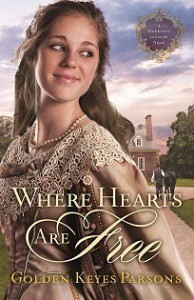 ancestors settled in the Schuylkill Valley around Bethlehem, PA, in 1737. The third book in my Darkness to Light series, Where Hearts Are Free, loosely chronicles the story of their settling there, although the book is set 50 years earlier. My ancestor, Louisa, landed in Pennsylvania, her husband having been washed overboard on the trip to the New World from Holland, along with all of their money. She had two sons, whom she had to leave with employers as apprentices, and she went with the other ship’s passengers to the Valley. I cannot imagine her anguish as she left those boys. I’m sure a Christmas celebration was the furthest from her mind. However, her sons joined her after they served their apprenticeships, married and raised their families as they settled on their land.
ancestors settled in the Schuylkill Valley around Bethlehem, PA, in 1737. The third book in my Darkness to Light series, Where Hearts Are Free, loosely chronicles the story of their settling there, although the book is set 50 years earlier. My ancestor, Louisa, landed in Pennsylvania, her husband having been washed overboard on the trip to the New World from Holland, along with all of their money. She had two sons, whom she had to leave with employers as apprentices, and she went with the other ship’s passengers to the Valley. I cannot imagine her anguish as she left those boys. I’m sure a Christmas celebration was the furthest from her mind. However, her sons joined her after they served their apprenticeships, married and raised their families as they settled on their land.
Christmas customs were varied in Colonial America from region to region. Southern celebrations differed from celebrations in New York  and Pennsylvania. Different religious groups contrasted greatly in their opinions of how or even if Christmas should be celebrated. The Puritans had actually outlawed the celebration of Christmas. The Moravians, with whom my ancestors affiliated, made a bigger “to do” of the holiday than did the other religious groups. They are credited with bringing the Christmas tree to this country.
and Pennsylvania. Different religious groups contrasted greatly in their opinions of how or even if Christmas should be celebrated. The Puritans had actually outlawed the celebration of Christmas. The Moravians, with whom my ancestors affiliated, made a bigger “to do” of the holiday than did the other religious groups. They are credited with bringing the Christmas tree to this country.
There was also a very early custom of building pyramids, which sat on a table, and hanging fruit, candles and pictures from the four-sided structure. An even earlier custom was that called putz, introduced in Bethlehem, PA, in 1782. It simply means decorations, usually of the nativity, but the 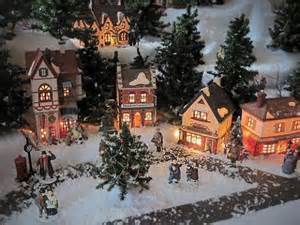 Moravians through the years developed very elaborate decorations to depict the story of the birth of Jesus. Little miniature houses began to appear constituting more and more elaborate displays. They turned into little villages … and I couldn’t find any documentation on this, but I’m wondering if perhaps these displays were the forerunners of the beautiful Christmas villages we find in homes today.
Moravians through the years developed very elaborate decorations to depict the story of the birth of Jesus. Little miniature houses began to appear constituting more and more elaborate displays. They turned into little villages … and I couldn’t find any documentation on this, but I’m wondering if perhaps these displays were the forerunners of the beautiful Christmas villages we find in homes today.
Today the Moravians celebrate with an elaborate candlelight service on Christmas Eve and on Christmas Day they have a “lovefeast” which consists of buns and mugs of coffee during the church service served by women known as diniernnen.
What are some Christmas customs that have been passed down through the generations in your family? I would love to hear from you!
If you enjoyed this post, please share it with your friends and subscribe to my blog and newsletter below. You will receive my modern short story version of ‘Trapped: The Adulterous Woman’ in your thank you email.
The post Christmas Customs in Colonial America appeared first on Golden Keyes Parsons.
Golden Keyes Parsons's Blog
- Golden Keyes Parsons's profile
- 83 followers


